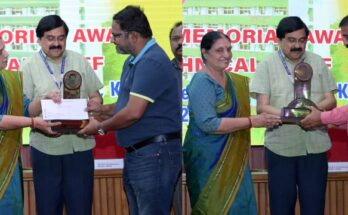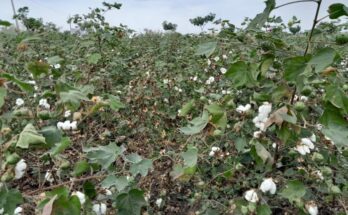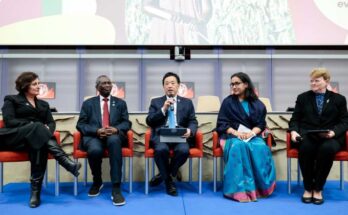Increasingly it has been realised that agriculture per se at the national and global levels is changing and consequently the role of agriculture professionals. The fledging agri-professionals being groomed academically at each State Agriculture University of this country need to be equipped with the latest ‘know-how’ and ‘do-how’, keeping in view the changing perspective. Over the years, the attitudes, expectations and employment in agriculture have changed; there is evidence that the skills and competencies of agri-graduates do not meet the needs of today’s agricultural sector.
Etymologically, the word ‘skilling’ connotes the ability and capacity acquired through deliberate, systematic, and sustained effort to smoothly and adaptively carry out complex activities or job functions involving ideas (cognitive skills), things (technical skills), and/or people (interpersonal skills). In nutshell, it is the ‘adroitness’ to do something effectively and efficiently.
This paper attempts to consolidate some of the existing literatures on the skills required for graduate students of agriculture and allied sectors in building their careers to meet the changing and evolving market demand. Therefore, this paper underscores the need for revisiting the curricula if required and/or bolstering the existing curricula with an ensemble of ‘skill sets’ for making agriculture education efficient and effective. Having said that, the proposed ‘skill set’ would be a reflection of the ‘expected role’ these graduates are likely to perform upon passing out of the university. An indicative list of ‘expected career goals’ includes viz. as a faculty/ researcher in SAU/ ICAR system, as an extension functionary at government department / private sector companies/ NGO, as a development functionary in banks, as an entrepreneur and others.
You may also like to read: 5 Management lessons to make ‘market smart’ farmers
Based on the career goals and roles to be performed by the agriculture professionals, the ‘skill set’ can be divided into three broad categories, viz. cognitive, non-cognitive and technical.
A. Skill Set based on ‘nature’
| Skill Set | |
| Cognitive skill | Research skill, Business Skill |
| Non-cognitive skill | Communication (both verbal and writing) skill, Interpersonal skill, Adaptability, Leadership skill etc. |
| Technical skill | Technical skill including IT skill |
i. Cognitive skill: This includes the abilities in verbal, numerical, mathematical and abstract reasoning. The skilled student should be able to acquire, retain, organise and apply the information so as to develop a greater knowledge of the job quickly, to make an effective decision, and respond appropriately to a new or complex situation.
ii. Non-cognitive skill: Often characterized as soft skills, these are relegated to backstage, but are probably the most important ingredients to a successful career. Language and the command over it, is now considered an important skill most professionals would require once put to the field situations. It encompasses the ability to organise words into comprehensible sentences expressed in writing and speaking. The professional vocabulary is usually very rich among the professionals but they falter on the general lexicon.
You may also like to read: Hybrid rice complements weather conditions of India
iii. Technical skill: It encompasses the skills relating to professional domains. Unlike earlier occasions, the present-day agriculture professionals would require knowledge and skills under multiple domains viz. climate change factors, IoT-based smart agriculture, accessing and application of remote sensing data, farmers’ organisation, credit and insurance and so on.
B. Skill set based on functional attributes
Based on the functional attributes of the ‘skill set’ can be categorised under five domains; namely, research skill, communication skill, business skill, interpersonal skill, pro-education skill and technical skill. Further, these five ‘skill set’ areas have been delineated as functional activities as given hereunder;
| Research Skill | a. Analytical Skill |
| b. Creative Skill | |
| c. Proposal Writing | |
| d. Data interpretation | |
| e. Multi-sector partnership |
| Communication Skill | a. Use of internet, data access and data sharing |
| b. Scientific writing | |
| c. Oral presentation skill | |
| d. Teaching | |
| e. Management of social media |
| Business Skill | a. Entrepreneurial |
| b. Financial | |
| c. Marketing | |
| d. Human Resources | |
| e. Managing intellectual property |
| Inter-personal Skill | a. Team building |
| b. Leadership | |
| c. Adaptability | |
| d. Empathy | |
| e. Assertive |
| Pro-Education Skill | a. Internship |
| b. Language | |
| c. Field experience | |
| d. Work abroad | |
| e. Extracurricular activities |
| Technical Skill | a. Professional skills |
| b. Climate Smart Agriculture | |
| c. IoT and sensor-based technologies | |
| d. Farmers’ organisation | |
| e. Credit and insurance linkage |
Thus, the ‘new agri-professional’ should, for example, be better able to work across different disciplines and in partnership with different stakeholders; the sound technical domain coupled with an understanding of entrepreneurship, market, credit and insurance, data handling, Internet of Things, sensor technologies and others. With increased attention to holistic and multi-disciplinary approaches to addressing challenges, agricultural professionals are expected to be able to integrate knowledge and practices from outside of their discipline and work within the multi-functionality of agriculture. As Indian Council of Agriculture Research (ICAR) and State Agriculture Universities (SAU) responsible for designing the curricula for agriculture and allied sciences may reckon with the add-on skill areas for revisiting the agri-academics.
(Dr. Sanat Mishra is a senior scientist at the Directorate of Planning, Monitoring & Evaluation, Odisha University of Agriculture and Technology, Bhubaneswar, Odisha. Views expressed in the article are the author’s own.)





